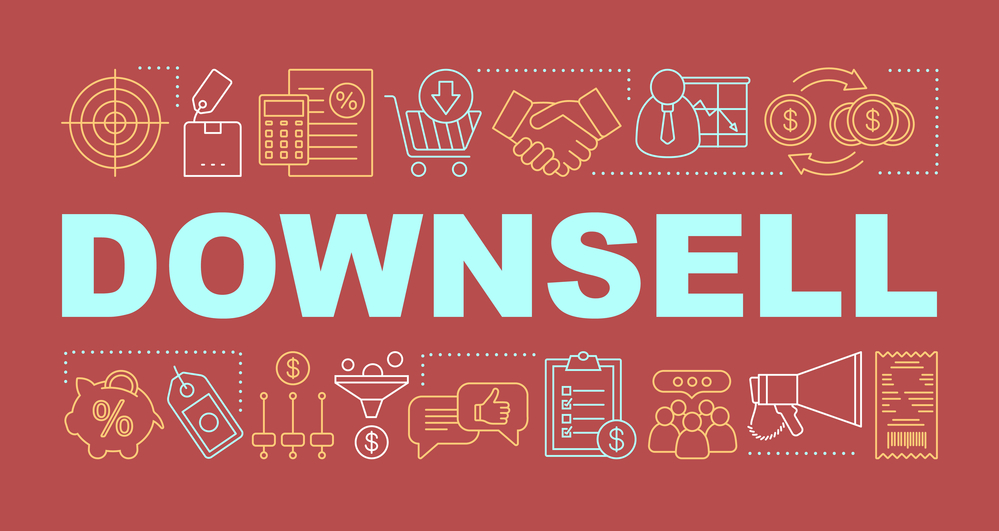
Build, Scale, Sell: Why You Should Build Your Small Business to Sell It
Jun 19, 2023 4 minutes
Entrepreneurship is a journey filled with ups and downs, one that requires tenacity, courage, and an unyielding belief in your vision. But have you ever considered the end game? What’s your ultimate goal with this venture you’re embarking on or have already begun?
In this post, we’ll discuss an approach that may seem counterintuitive at first: building a business with the intention to sell it. It’s not a strategy suitable for every small business owner or entrepreneur, but for some, it can be an incredibly fruitful path.
This strategy encourages us to look beyond the daily grind, pushing us to view our business as not just a means of income, but a valuable asset we’re nurturing for future gains. By designing your venture with an exit in mind, you might just increase your chances of building a more successful business that can be sold for a premium in the future.
The Concept of Building a Business to Sell
Building a business to sell is a strategy that many successful entrepreneurs have employed. But what exactly does it mean? In essence, it refers to the approach of starting a business with the express purpose of selling it once it becomes successful and profitable. It’s about creating a company not as an indefinite source of income, but as a valuable asset that will be attractive to potential buyers.
This approach requires a different mindset than building a business to own indefinitely. It pushes entrepreneurs to think about the long-term value and marketability of their business from the very beginning, factoring these considerations into every decision they make, from choosing a business model, to structuring operations, to defining their branding and customer relations.
This concept may seem daunting, or even a bit cynical, to some—putting in all the hard work to get a business license, business loan, business bank account, and paying the seemingly infinite startup costs.
After all, aren’t we supposed to pour our heart and soul into our business, nurture it, and stick with it through thick and thin? Absolutely! Passion and commitment are crucial for any entrepreneur. But embracing the strategy of building a business to sell doesn’t mean you care any less about your business.
Instead, it means you are focused on creating a business that is robust, adaptable, and primed for growth, even if that growth continues under new ownership.
The Potential Advantages of Building a Business to Sell
When designed and executed properly, building to sell can lead to rewarding outcomes. Let’s explore some of the potential advantages.
Higher Profits
Consider the cumulative profit you’d earn over several years of running a business. Now, compare that with the potentially substantial sum you could receive from selling that business as a successful, profitable entity.
The latter can often be considerably larger. By building a business with an exit strategy in mind, you could secure a significant return on your investment in a shorter timeframe.
Flexibility
Selling a successful business provides an entrepreneur with the financial means and the freedom to explore new opportunities. Whether you want to retire early, travel the world, or dive into a new business venture, having the capital from selling a business gives you the flexibility to choose your next step.
This model of serial entrepreneurship allows for a dynamic, continually evolving career.
Skill Development
Building a business to sell can expedite your growth as an entrepreneur. Knowing that you’ll eventually hand over the reins forces you to create efficient systems, develop a strong team, and fine-tune your business model—skills that are invaluable for any future entrepreneurial ventures.
Each business you build and sell contributes to your repertoire of skills and experiences, better equipping you for your next venture.
Potential for Market Impact
When you sell to a larger entity, your business idea or product could reach a far greater audience than it might have under your sole guidance—far greater than your initial target audience. This can be particularly gratifying if you’re motivated by the potential for your product or service to make a widespread impact.
Reducing Long-term Risk
No matter how successful, every business carries some level of risk. Market conditions change, competition arises, and innovation disrupts. Selling a successful business can mitigate the long-term risks inherent in business ownership, allowing you to secure your profits and exit before any potential market downturns.
The #1 Thing Any Small Business Needs Is a Solid Payment Processor
Identifying a Worthwhile Business Idea
Having a solid business idea is the cornerstone of any successful venture. But when you’re building a business to sell, the stakes are higher. Your idea needs to not only solve a problem or fulfill a need, but it also needs to have a strong potential for growth and the ability to thrive without you.
High Market Potential
The ideal business idea caters to a large or rapidly growing market. This allows room for your business to expand and increase its value over time. You want potential buyers to see that there are still untapped opportunities for growth. Market research is key to identifying these opportunities.
Solving a Real Problem or Satisfying a Market Need
Your business idea should provide a solution to a problem or meet a need that is currently unfulfilled in the target market. This value proposition is what makes your business attractive to customers and, by extension, to potential buyers. Validate your idea by ensuring there’s a demand for what you’re offering.
Scalability
Scalability is a critical factor in a business’s salability. This means your business has the potential to multiply revenue with minimal incremental cost. Whether it’s through a franchising model, digital products, or a unique service that can be replicated across different markets (like dropshipping), scalability can significantly increase the value of your business.
Independence from the Owner
While it’s natural for startups to rely heavily on their founders, if a business can’t function without you, it’s going to be less attractive to buyers. From the start, consider how you can set up systems, automate processes, and build a competent team to allow the business to operate independently.
Key Steps for Business Owners in the Process
Building a business to sell is a journey, one that requires careful planning, strategic decision-making, and diligent execution. As a business owner, there are several key steps you should take to increase the chances of your venture being a sellable one.
Establishing Clear Goals and a Timeline
Start with the end in mind. What are your goals for this business, and when do you ideally want to sell? Having clear objectives and a rough timeline can guide your strategic decisions and keep you focused on preparing your business for an eventual sale.
Building a Strong Team
A business that relies solely on its owner is not attractive to buyers. Building a competent team not only lightens your workload but also ensures that the business can continue operating successfully under new ownership. Invest in your employees’ growth and create a positive company culture.
Focusing on Profitability and Maintaining Clean Financial Records
Buyers want to see that your business is profitable and well-managed. Regularly review and optimize your revenue streams, costs, and margins. Maintain clean and organized financial statements and records; they’re crucial when it comes time to discuss business valuation with potential buyers.
Creating a Strong Brand and Customer Base
Your brand is your promise to your customers, and a strong brand can add significant value to your business. Work on building a loyal customer base and consistently deliver excellent customer experiences. These elements can make your business more appealing to potential buyers.
Implementing Systems and Automating Processes
The more you can systematize and automate your online business operations, the less dependent the business will be on any one person, including you. This not only improves efficiency but also increases the likelihood of a smooth transition when you sell the business.
Continuously Evaluating and Adjusting Your Plan
The business world is dynamic, and the best entrepreneurs are those who can adapt. Regularly revisit your goals, assess your progress, and be ready to adjust your business plans as necessary.
Are chargebacks an issue? We can help!
How to Evaluate When It’s the Right Time to Sell
Deciding when to sell is just as important as building a business designed to be sold. Timing can significantly impact the valuation of your business and your overall exit strategy success.
Business Performance and Market Conditions
Ideally, you should sell your business when it’s performing well and showing a strong growth trajectory. Selling during a downturn can lower your valuation. Similarly, keep an eye on market conditions. Are businesses like yours being frequently acquired? Is the economy overall in a strong position?
Your Personal Readiness
Assess your personal readiness to let go of your online store. Are you prepared both financially and emotionally? Remember, selling an ecommerce business can be a lengthy process and can require your full attention.
Interest from Potential Buyers
If you’ve been approached by a potential buyer who’s offering an attractive deal, it might be the right time to sell. Sometimes, the market presents you with opportunities that are too good to pass up.
Your Next Venture
Do you have another business idea that you’re eager to pursue? If you’re itching to start a new venture, it might be time to consider selling your current one.
Remember, deciding to sell your own business is a significant decision. It requires careful consideration of several factors, both personal and market-driven. Take your time, consult with advisors, and make sure it’s the right move for you. In the final section, we’ll cover the essentials of preparing your business for sale.
Business Is Doing Well
A lot of entrepreneurs think they should sell when things start going downhill. But why would an investor or buyer want to purchase a business that’s failing? Instead, the business sale should happen while your business is still doing great. Focus more on your interest in the business and not the numbers. When your interest wavers, that’s when it’s time to call it quits.
Buyers want to see that you’ve set up the business for success: strong marketing strategies (e.g., social media presence, podcast, email lists, SEO), solid business structure, and steady cash flow. They’re looking to adopt a success and make it even better, not save a failed projected.
Just Opening Up, or Are You Ready to Sell?
Building a business to sell is a fascinating journey that can lead to significant rewards. From the moment you identify your small business idea, to creating a scalable business model, and ultimately deciding when to sell, each step requires strategic thought and careful planning. This approach not only prepares you for an eventual sale but also ensures that you’re building a robust, profitable, and scalable business that adds value to the market.
As you embark on this entrepreneurial journey, it’s critical to surround yourself with the right tools and providers to support your growth. Financial transactions are a crucial part of your operations, and you need a reliable partner to make sure your bottom line stays in the black.
That’s where DirectPayNet comes in. Whether you’re just starting out or preparing to sell, DirectPayNet’s high-risk merchant accounts offer the reliable, flexible, and secure payment solutions your business needs. Our tailored solutions can help you navigate the complexities of high-risk payments, from high-ticket real estate to low-cost Amazon, ensuring you can focus on building and growing a business that’s ready to sell.
GET A CREDIT CARD PROCESSOR THAT SUPPORTS WHATEVER YOUR BUSINESS IS RIGHT NOW




